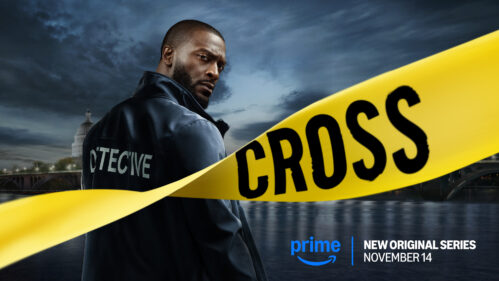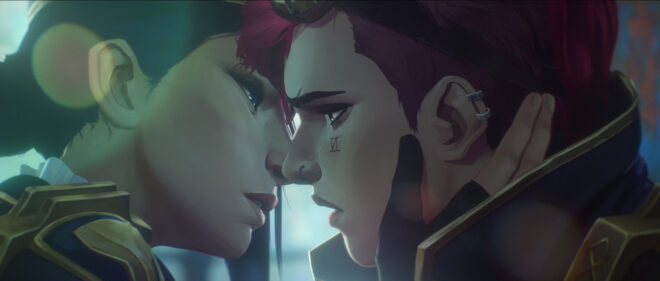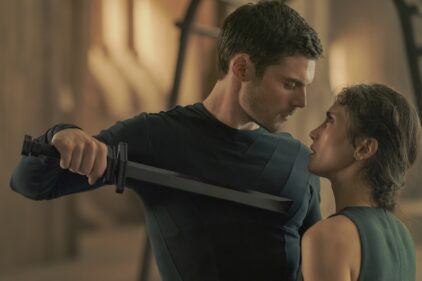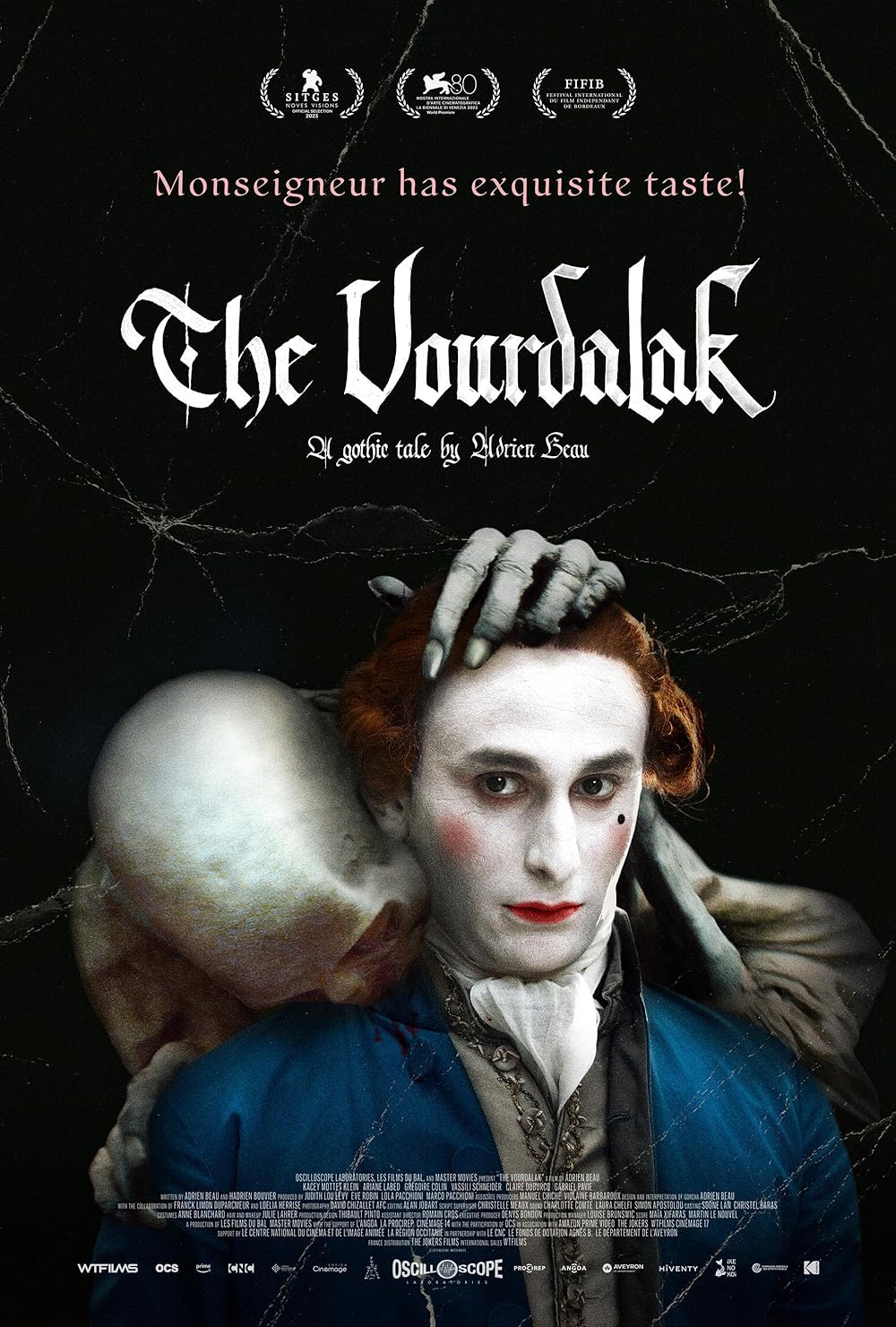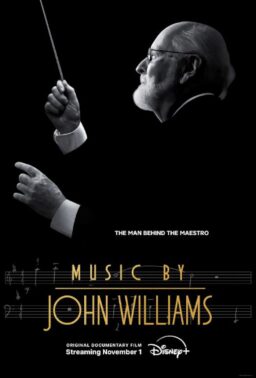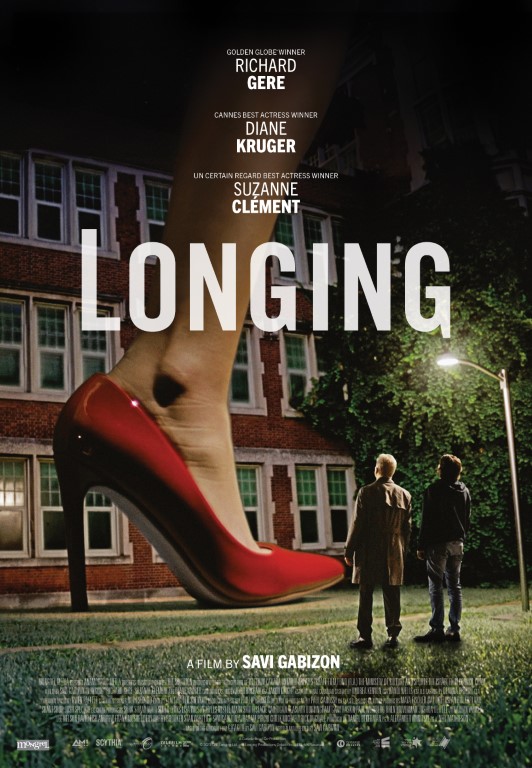"Mummy's going to be a princess," Suzie Pickles tells her son in the opening moments of "I Hate Suzie," a blistering new tragicomedy from co-creators Billie Piper and Lucy Prebbles arriving in the U.S. by way of HBO Max. She glides through the garden of her beautiful, chaotic house in the country, giddy with excitement, and one can almost see the dress she's imagining as it invisibly sweeps across the ground. By episode's end, she's stalking through the sleepy town in a Cruella De Vil-inspired fur coat (real, but vintage, we're told), covered in fake blood, on the hunt for a phone charger and delivering a heartfelt soliloquy on how much she hates everything and everyone she sees. The princess dress was invisible. This getup is anything but.

It's not subtle, and it's not meant to be. A blisteringly funny, deeply felt character study, pitched as black as smudged eyeliner and as frenetic as a housecat at 3 a.m., "I Hate Suzie" is a story about consequences. But it's also a story about how utterly insufficient the notion that ‘actions have consequences' can be. There are consequences to our actions, but there's also the world in which both exist, a brutal, uncompromising place that's rarely interested in the territory between ‘princess' and ‘villainous hag.' It's an exhausting place for this series to live, but that exhaustion is intentional; with it comes honesty, ugliness, empathy, ambition, and some very funny, often filthy jokes. It will inevitably find itself measured against "Fleabag," and it's easy to see why: both center on a woman who seems to frustrate or infuriate those who do or are meant to love her, and that includes the woman herself; both are refreshingly frank about both sex and grief; both display no trepidation about asking the audience to empathize and be furious with the central figure all at once; most specifically, both use the trappings of narrative and genre to tell the story. But to see the marvelous "I Hate Suzie" as a hopeful "Fleabag" successor, and not its own original, thrillingly vulnerable creation, would be a mistake. Billie Piper isn't Phoebe Waller-Bridge. She's Billie Piper, and she's electrifying.
Reuniting Piper with "Secret Diary of a Call Girl" boss Prebble, "Suzie" begins mere moment before the world starts to tumble down around the titular character's head. Suzie Pickles (Piper) shot to stardom as a teenager when she won a televised singing competition (think "Britain's Got Talent"); now all grown up, she self-identifies as a terrible wife, terrible mother, and "slightly above-average actress" who then starred in a beloved sci-fi series before moving over to a horror show about Nazi zombies. (Yes, that's deliberately reflective of Piper's own career trajectory; no, it is not autobiography.) She's just begun to celebrate booking an "aging princess" role with Disney when a pack of media people show up to do a glossy magazine photoshoot, and she's mid-shoot when all their phones begin to buzz: the news that photos of a sexual nature have been hacked from her phone has broken. One is of her with a penis in her mouth, and that penis is very obviously not her husband's.

To say that the images come as a shock to both her husband Cob (Daniel Ings, excellent) and her agent/lifelong best friend Naomi (Leila Farzad, also excellent) would be an understatement. The immediate fallout comprises the whole of "Shock," the almost unbearably tense pilot, which feels a bit like someone tried to stuff the most anxiety-inducing bits of "Uncut Gems" into a particularly gnarly episode of "The Comeback." The seven episodes that follow also track the aftermath of this catastrophic invasion of privacy, each assigned its own stage of Piper and Prebble's version of the Kübler-Ross stages of grief. After shock comes "Denial" (Suzie goes to a convention and lies about the photos), then "Fear" (her home address winds up in the paper, which isn't great for someone with a stalker), then "Shame," "Bargaining," "Guilt," "Anger," and finally "Acceptance." Mostly.
What happens within those stages is more thematically rich and complex than the conceit might suggest. Prebble, who pens all the teleplays, and Georgi Banks-Davies, a newcomer making a frankly astonishing debut as the director of six of these eight episodes, take no half-measures. Each episode works as a thoughtful, even bracing exploration of its stated theme, but at no point do the proceedings become orderly; like grief and growth, it all kind of bleeds together, and the story itself moves organically, without ever feeling constrained by the structure the creators have built for themselves. (An invisible but nevertheless dazzling feat, that.) As Suzie's perspective and emotional state shifts, so does the visual language, an often subtle but always marvelous display of cinematic storytelling that incorporates and interrogates one's preconceived notions about genre, narrative tropes, and agency. (And of Britney Spears, for good measure.) Not all of it works, but most of it does, because the direction is, uniformly, equal parts boldness and thought. "I Hate Suzie" doesn't immediately rocket Banks-Davies to near the top of every producer's call list, then they've all gone mad.
There's much more to praise here. The score is terrific, the costuming inventive and evocative, and the editing merciless in the best way; the show's approach to its disabled characters is refreshingly direct and avoids the saccharine and maudlin at all costs. But all those pieces and many others could be a lot less effective and "I Hate Suzie" would still be can't-miss stuff. The main event is the marriage of a world-class performer with a fascinating character born of an obviously rich creative partnership between her co-creators—one a great actor, the other a great writer. ("Succession" fans will already be well aware of Prebble's considerable gifts.) Artistic collaboration of this sort can be a frustrating, mercurial process, something Suzie experiences firsthand in "Anger," but Suzie is a walking illustration of the value of such partnerships. She's an exposed nerve, an open wound, a bare lightbulb flaring brilliantly off and on. Some people hate Suzie. Suzie certainly does. You won't.
Whole season screened for review.



